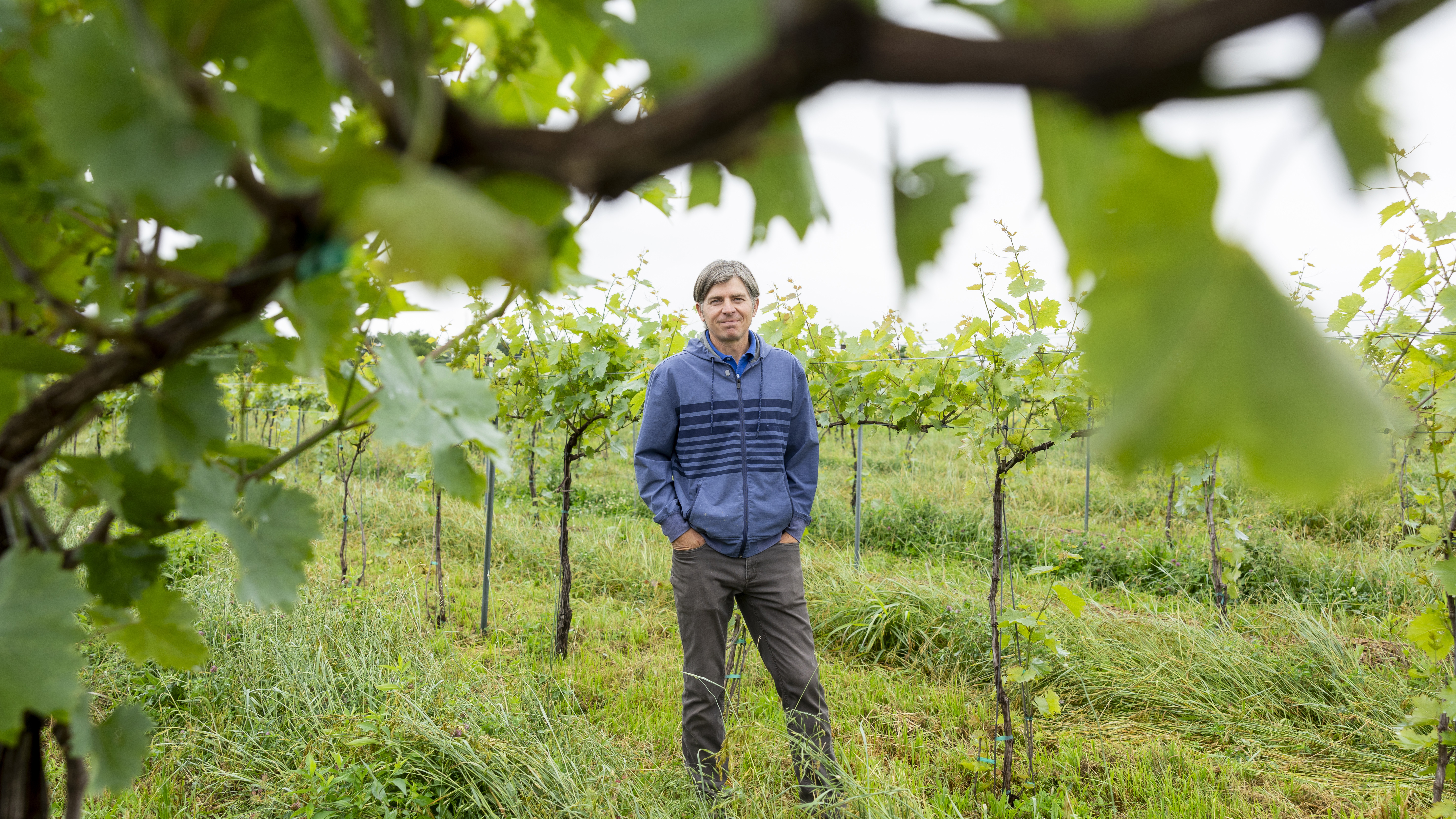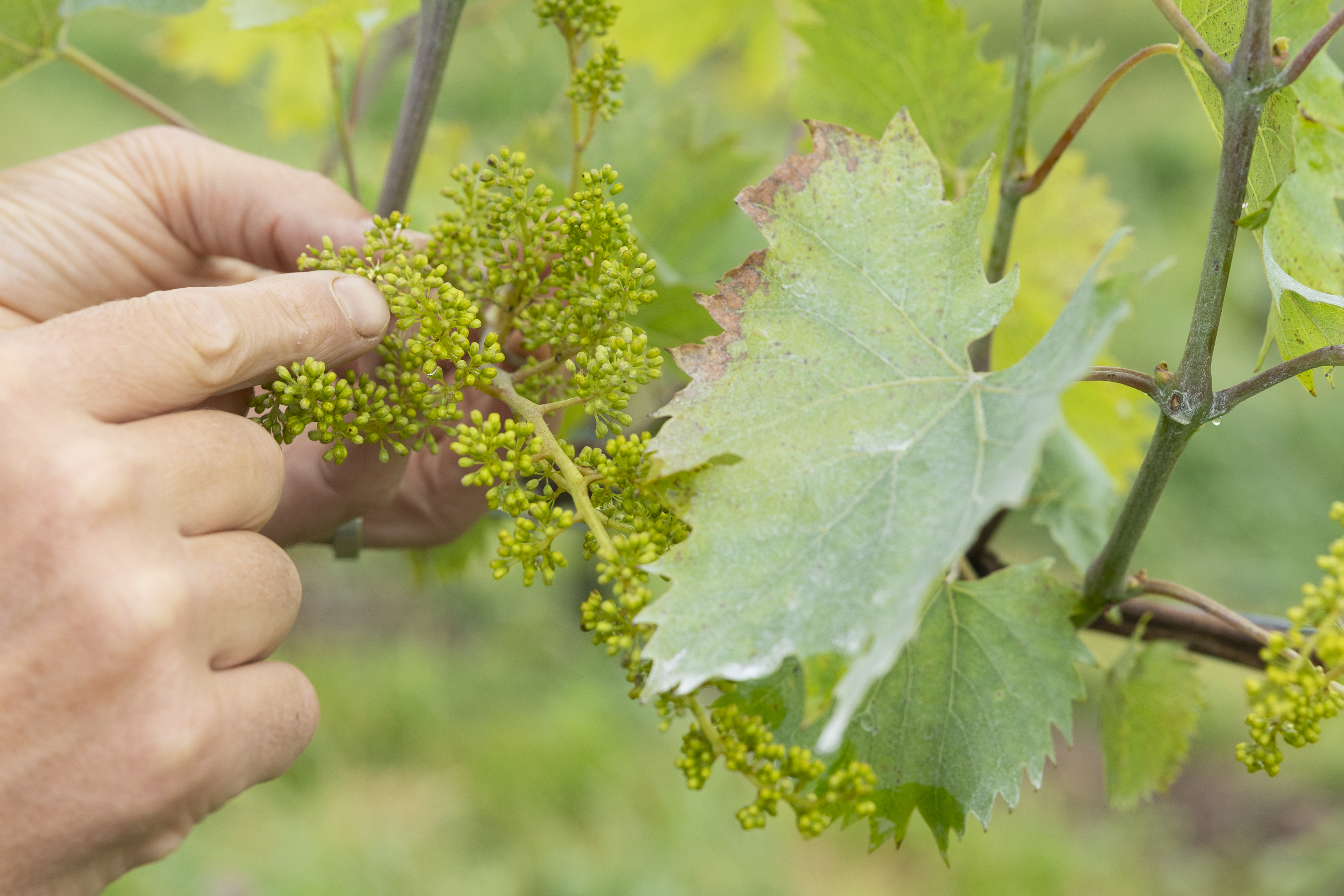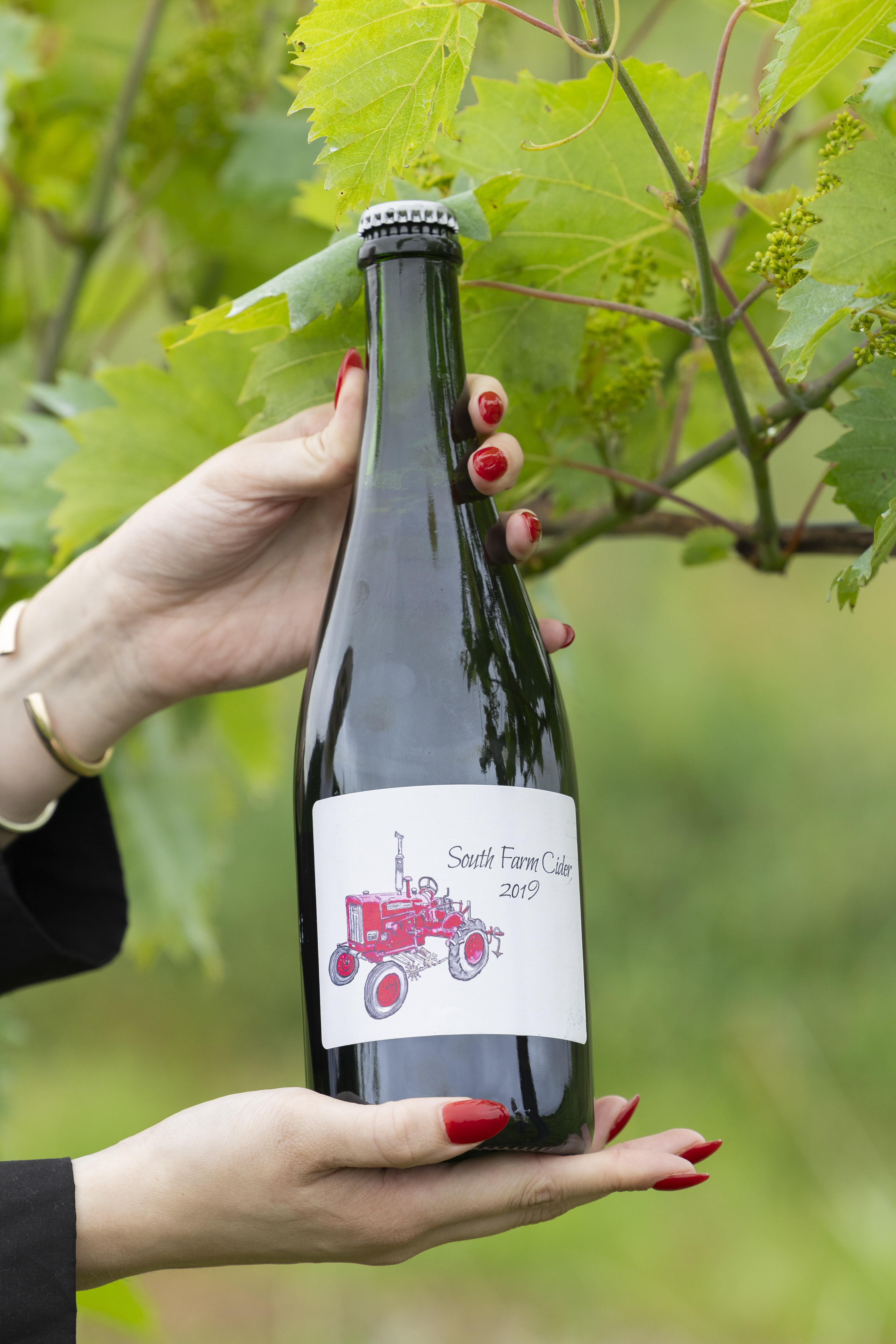'Wine that's grown here tastes like Kentucky': University of Kentucky enologist shares about research, teaching at UK Winery
'Wine that's grown here tastes like Kentucky': University of Kentucky enologist shares about research, teaching at UK Winery


The University of Kentucky Horticulture Research Farm sits on the corner of Nicholasville Road and Man o’ War Boulevard in Lexington. The farm is 100 acres of land that Martin-Gatton College of Agriculture, Food and Environment faculty, students and UK Cooperative Extension staff use to conduct research and offer educational opportunities.

Six acres of the farm are reserved for UK’s winery. Jeff Wheeler, enology extension specialist, is heavily involved in the upkeep of the winery and the grape production there. He teaches HRT 336 and 337, introduction to grape production and introduction to wine production, respectively. Both classes are elective options for the Distilling, Wine and Brewing Sciences Certificate offered by the UK James B. Beam Institute for Kentucky Spirits. Grouping the study of different alcoholic mediums is the best way to make the processes make sense, according to Wheeler.
“Wine, beer and spirits obviously offer a diversity of flavor, but you’ll also see similarities in the processes: farming, fermentation, aging, etc.,” Wheeler said.
The winery allows Wheeler to give students a hands-on, agriculture-focused window into enology and why the study of wine is so important to him. The wine production class is offered in the fall, when the fruit on the vines is ready for harvest. Students learn how that harvested product goes from the farm to bottles to store shelves. The grape production course, offered in the spring, starts at the beginning of the process. Students learn about planting and pruning, understanding the high level of care it takes for the vines to make it to harvest.
“Students come away from the classes with a basic understanding or appreciation of how hard it is to farm, but specifically to farm grapevines in a challenging climate,” Wheeler said. “If you do everything right and find ways to overcome adversity that comes with certain growing methods or varieties, students are surprised at the quality of wine we can make, and that they get a part in it.”
Not only are wine, beer and spirits similar in production methods, but at the heart of all three are farmers.

“Farming is important. The raw product being transformed into something that can be enjoyed—wine is essentially shelf-stable fruit,” Wheeler said. “The preservation of the agricultural product is what ties everything together.”
When asked, ‘why winemaking?’ Wheeler’s response is simple: a love for food, plants and being outdoors made this industry one he wanted to call home.
“Wine specifically out of all agricultural products is a really good way to express a sense of place,” Wheeler said. “The wines we grow in Kentucky can only be grown in Kentucky. It will only taste like this in Kentucky.”
The research and education happening at the UK Horticulture Research Farm is made possible by funding from the Kentucky Agriculture Development Board, which resides within the Kentucky Department of Agriculture (KDA).
The mission of Martin-Gatton CAFE is threefold, research, teaching and extension, and the winery supports all three of those tenets. Extension involves working with commercial wineries and grape growers, whether they be local and small or larger corporate institutions. The team at the horticulture farm conducts experiments to help those wineries be as efficient as possible in their day-to-day operations.
When they aren’t working to help other farms and wineries, the UK team bottles and sells its own wine. For instructions on how to purchase and pick up wine, visit https://winery.ca.uky.edu/. All proceeds from these sales go back to funding research and teaching at the winery.
For more information on the UK Horticulture Research Farm and its other projects, visit https://research.ca.uky.edu/content/SouthFarm.
###
Writer: Grace Sowards, grace.sowards@uky.edu
The Martin-Gatton College of Agriculture, Food and Environment is an Equal Opportunity Organization with respect to education and employment and authorization to provide research, education information and other services only to individuals and institutions that function without regard to economic or social status and will not discriminate on the basis of race, color, ethnic origin, national origin, creed, religion, political belief, sex, sexual orientation, gender identity, gender expression, pregnancy, marital status, genetic information, age, veteran status, physical or mental disability or reprisal or retaliation for prior civil rights activity.
Beam Institute Horticulture
